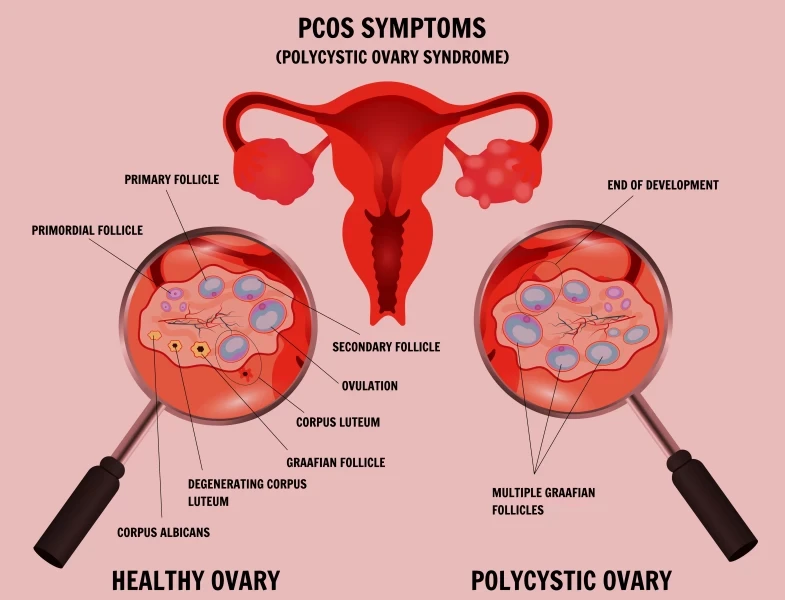Polycystic Ovary Syndrome (PCOS) is one of the most common hormonal disorders affecting women. It often disrupts the regular ovulation cycle, making it harder to conceive naturally. Elevated levels of androgens and insulin resistance are key culprits. Understanding how PCOS affects hormone balance is important in identifying treatment strategies that can support healthy fertility outcomes. Early diagnosis and a clear understanding of your symptoms can greatly improve your chances of managing PCOS effectively.
Why PCOS Affects Ovulation and Menstrual Cycles
PCOS interferes with ovulation by causing hormonal imbalances that prevent the release of eggs from the ovaries. This leads to irregular periods or even complete absence of menstruation. Over time, this can make it difficult to track fertile windows or conceive without medical assistance. The hormonal disruption often results in multiple small follicles that fail to mature fully.
When to Seek Medical Advice for PCOS-related Infertility
If you’ve been trying to conceive for over a year without success, or six months if you’re over 35, it’s time to consult a fertility specialist. Women with PCOS may need medical support earlier due to unpredictable cycles. Additional symptoms like excessive hair growth, acne, or rapid weight gain also warrant medical attention. A reproductive endocrinologist can run the right tests to evaluate ovulation and suggest a treatment plan for your fertility needs.
Lifestyle Changes That Support Fertility with PCOS
Making lifestyle adjustments can significantly improve fertility outcomes in women with PCOS. Some effective strategies include:
- Maintaining a healthy weight
- Following a balanced, low-glycemic diet
- Incorporating regular physical activity
- Managing stress through yoga, meditation, or therapy
Even modest weight loss can restore ovulatory function in many women. Lifestyle changes are often recommended as the first line of treatment, especially for those looking to avoid or delay medication.
Medications That Help Stimulate Ovulation
For women who don’t ovulate regularly, medications like Clomiphene Citrate or Letrozole are often prescribed to induce ovulation. These drugs help stimulate the ovaries to release an egg, improving the chances of conception. In some cases, hormone injections may be used if oral medications are ineffective. Close monitoring through ultrasound ensures the treatment is working effectively without leading to complications like ovarian hyperstimulation syndrome (OHSS).
The Role of Insulin-sensitizing Drugs in PCOS Treatment
Insulin resistance is a common feature in women with PCOS and can contribute to irregular cycles and infertility. Medications can help lower insulin levels and improve the body’s response to insulin, which in turn supports better hormone regulation and ovulation. While they alone may not induce ovulation, it can be used in combination with ovulation-inducing drugs for better results. It also helps manage weight and reduce the risk of developing type 2 diabetes.
Assisted Reproductive Technologies (ART) for PCOS
When lifestyle changes and medications don’t lead to pregnancy, assisted reproductive technologies such as Intrauterine Insemination (IUI) or In Vitro Fertilization (IVF) may be considered. IVF is often more effective for women with severe ovulation issues or multiple failed IUI cycles. ART provides controlled environments for fertilization and can overcome some of the hormonal disruptions associated with PCOS. While these treatments may be more intensive, they also offer higher success rates in many cases.
Surgical Options
Laparoscopic ovarian drilling is a minimally invasive surgery used as a second-line treatment for women who don’t respond to medication. The procedure involves using a laser or electrocautery to destroy a small portion of ovarian tissue, which can help restore regular ovulation. While not as commonly used today due to advances in medication, it can still be effective in select cases. Risks are minimal, but should be talked about carefully with your doctor before proceeding.
Mumbai has grown to one of India’s top destinations for fertility care, offering advanced diagnostics, personalized treatment plans, and access to specialists with years of experience. Whether it’s hormonal evaluation, fertility counselling, or IVF, patients have access to comprehensive care under one roof. Those seeking long-term fertility support can consider the best PCOS treatment in Mumbai.
Emotional Health During PCOS Treatment
Coping with infertility can be emotionally exhausting, especially when dealing with the unpredictability of PCOS. It’s good to seek emotional support through counselling, support groups, or therapy. Many clinics now include mental health professionals as part of the care team. Being emotionally healthy can improve treatment adherence, reduce stress, and enhance overall well-being.

